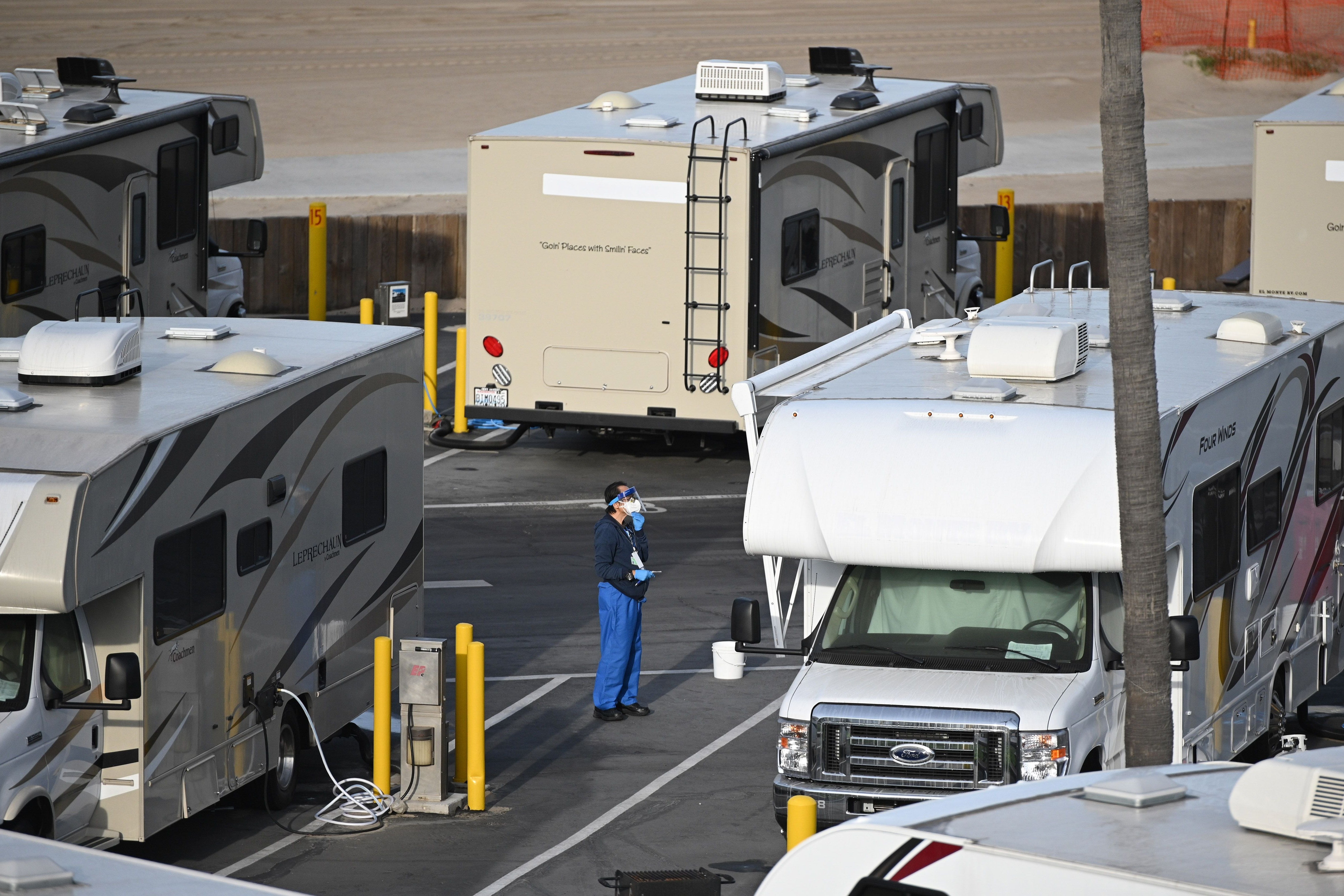
A Florida mom is suing a company that vets guests for Airbnb after she says she was banned from the short-term rental platform over a pair of past felony convictions that have since been expunged.
The mistake, which the lawsuit argues never should have happened, left the woman unable to take her daughter to a series of potentially lucrative rodeo competitions, and prevented the girl — whose winnings provide the family’s main source of income — from qualifying for the barrel racing national championships.
As a result, she was forced to give up a chance at “more publicity and other economic opportunities,” while her mother, who is Black and identified in court filings as “Jane Doe,” remains unable to access her Airbnb account over offenses that are no longer on her record.
“Moreover, [Doe’s] daughter is trying to set the standard for other people of color to join barrel racing,” according to the complaint. “[Doe’s] daughter was very upset that she missed out on her opportunity to showcase her skills at Nationals, which devastated [Doe].”
The case sheds new light on an ongoing issue faced by formerly incarcerated people who have worked hard to turn their lives around after paying their debt to society. Airbnb has previously come under fire for the practice, and the company has been slammed by affected individuals as well as civil rights groups who say it perpetuates systemic racism.
Attorney David Pinkhasov, who is representing Doe, told The Independent, “A lot of times, these [background check] companies rely on data vendors to obtain information, without doing any manual review of what they receive.”

Fully automated data mining, often with the assistance of AI, can result in a truly surreal set of issues, according to co-counsel Moshe Boroosan, managing partner of litigation at New York City-based Consumer Attorneys PLLC. He described one case involving a client who was mixed up with the leader of a neo-Nazi prison gang because the two shared a similar name, another client who found himself confused with a convicted murderer who was born on the exact same date, and a third whose identity had been conflated with a large-scale fentanyl trafficker over a set of comparable personal identifiers.
“We see so many of these cases, unfortunately,” Boroosan told The Independent.
Inflection Risk Solutions, the background check provider being sued by Doe, uses an algorithm to scrape public records and return what it dubs “clear crime classifications and descriptions that enable your team to filter and prioritize offenses.” A request for comment sent on Wednesday to the San Francisco-based firm went unanswered.
Airbnb, which is not named as a defendant in Doe’s suit, also did not respond to a request for comment. Its website says minor crimes such as disorderly conduct and marijuana possession “are not removable offenses.” However, users with, for example, a felony burglary conviction are ineligible to use the platform for 14 years after being found guilty; those convicted of crimes involving fraud or property damage render them ineligible for a period of seven years.
A person’s account can be permanently removed in cases of murder, rape, terrorism, and hate crimes. Airbnb also has a process in place for suspended users to appeal, and takes into consideration a person’s age at the time of conviction, number of convictions, and things that show evidence of rehabilitation, like being successfully employed.

Doe’s ordeal began on December 23, 2024, when she attempted to book accommodations through Airbnb for herself, her husband, and their daughter, along with her two other siblings, according to a complaint filed Monday in Ft. Myers federal court.
It says the five were planning to travel across the country for barrel racing competitions, and “looked forward to the additional space, comfort, and amenities of the properties” listed on Airbnb.
Barrel racing is a women-only event that involves entering the ring astride a horse galloping at full speed, then maneuvering around three barrels set up in a cloverleaf pattern, as quickly as possible, with winners and losers often separated by fractions of seconds.
To book a stay, the Airbnb site required Doe to authorize a background check, which she gladly did “as there was nothing on her record of concern,” the complaint states. But, it goes on, Doe soon received an email from Airbnb, saying her reservation had been canceled and her account removed, due to her criminal history. In a panic, the complaint says Doe requested a copy of the report in question, and was “shocked and humiliated” to find her two expunged felonies, the details of which are not in the complaint, had been included.
Doe had used Airbnb before, without a problem, Boroosan said, explaining that credit card issuers, employers, landlords, and companies like Airbnb run checks on customers, staffers, tenants, and renters every so often in order to make sure their intel stays current. This time, for whatever reason, Doe’s account happened to be flagged. It is unclear why her convictions remained in Inflection’s files.

Doe checked public court records to confirm the expungements hadn’t somehow been undone, then Doe immediately contacted Airbnb to appeal the decision. She informed the company that her convictions had been cleared more than two years earlier, and never should have been reported, the complaint continues.
Still, Airbnb refused to budge, according to the complaint. Booking the family into hotels and RV parks became the only option for Doe, which were often either unaffordable or too small for everyone to fit, the complaint states. Ultimately, it says, Doe was unable to bring her daughter to two of her barrel race competitions, which kept her from making the nationals.
The public court record “was widely available,” and “even a cursory review” of it by Inflection Risk Solutions would have spared Doe “the humiliation, embarrassment, and stress” of the resulting situation, the complaint states.
“An appropriate quality control review of [Does] report would have made clear that [Inflection] was reporting an expunged record and thereby defeating the very purpose of expungement,” the complaint alleges.
As of January 29, Doe remains unable to use the Airbnb platform, it says.
Doe is demanding a jury trial, along with attorneys’ fees and actual, statutory, and punitive damages to be determined in court.







